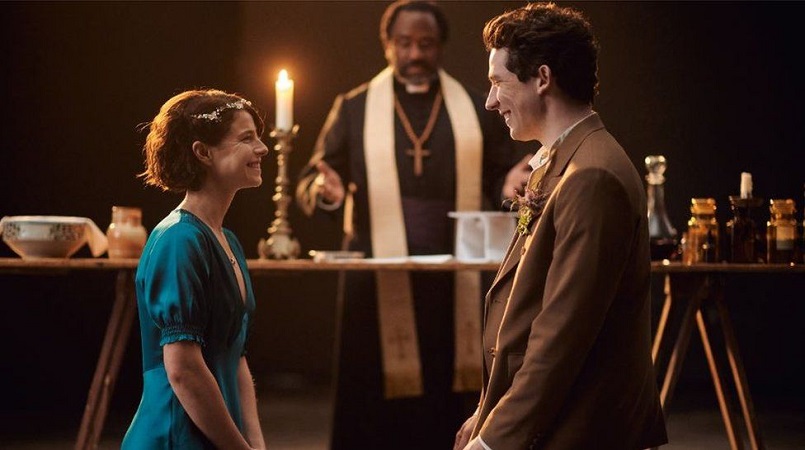
Josh O'Connor and Jessie Buckley were excited about heading up a stage production of Romeo and Juliet.
Then when Covid-19 forced the play's cancellation last year the National Theatre had another idea - how about doing it as a film for TV? O'Connor and Buckley almost said no but they're glad they didn't.
Last summer seemed the perfect time for O'Connor and Buckley to prove their talent in a well-known Shakespeare at an important venue.
O'Connor's career had taken off with two roles - Larry in The Durrells for ITV followed by two seasons in The Crown as Prince Charles. (His successor as Charles is yet to be confirmed.)
Buckley was in the much-praised Chernobyl then showed her range in the bio-pic Judy, playing the assistant assigned to keep Judy Garland on track in 1960s London.
But like almost everything on the National's schedule for 2020, its version of Romeo and Juliet was under threat as soon as the Covid pandemic hit.
O'Connor recalls "Friday therapy sessions" when some of those involved got together to try to work out what lay beyond the fog of Lockdown One.
"It would be Jessie and myself and the director Simon Godwin and sometimes Fisayo Akinade (who plays Mercutio) and Rufus Norris, who runs the National. They were brilliant at keeping us all involved and motivated.
"But when they first came to us about making it a film instead, I think for both of us the reaction was absolutely not - not a chance mate. It just didn't seem the right idea. So thank goodness we followed through and engaged with it as a project.'
The film is pacy, lasting just 90 minutes. It was shot over 17 days on and around the National's Lyttelton stage. In normal times the auditorium has an audience capacity of 890 but the seats remained empty.
Director Simon Godwin uses the stage and the areas around it like a film studio - in no way does it feel just like a play taped for TV. The production is fluid and well-lit and it works well.
O'Connor says when their Romeo and Juliet pivoted into a film they both pitched ideas on how it should be done. "We brought in films to discuss and we talked about how we could make it theatrical and yet not shy away from the cinematic nature of what we were doing.
"We always knew we wanted to include the building in some way. It lends a texture and tapestry to what you see. So there was a lot to think through but once we really got into it it was the greatest experience of my career. I was having the time of my life."
